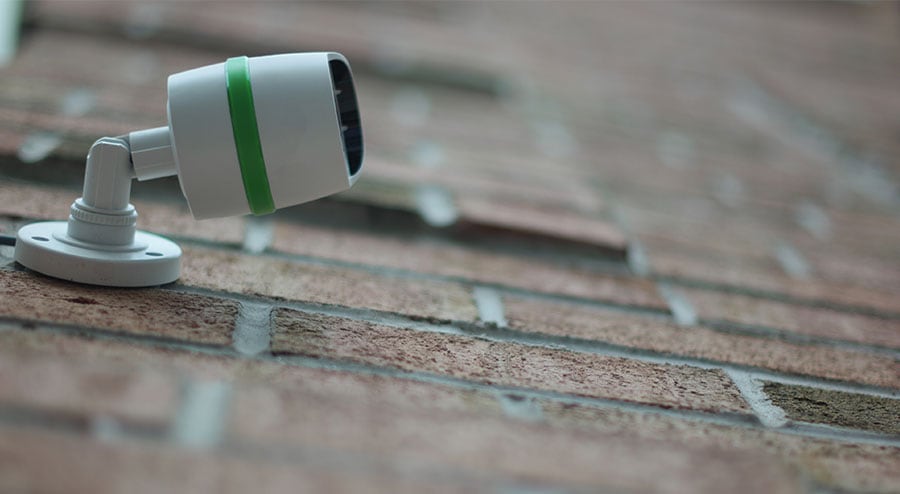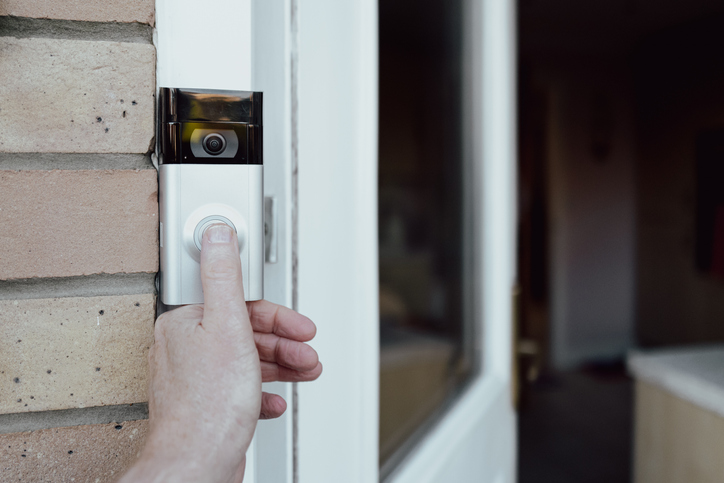Home security should be a top priority for every homeowner, regardless of the neighborhood or location. In this guide, we will explore essential steps and best practices to enhance the protection of your home. From assessing security risks and securing entry points to utilizing home security cameras and engaging in community watch programs, these measures will empower you to create a robust security plan that ensures the safety of your loved ones and provides peace of mind.

Assessing Home Security Risks
When you move into a new home, one of the first steps in enhancing your security is to identify potential vulnerabilities. Start by conducting a walk-through of your property, paying close attention to entry points such as doors, windows, and the garage. Look for any signs of wear and tear, weak locks, or broken hinges that could make it easier for intruders to gain access.
- Assessing Home Security Risks
- Securing Entry Points
- Protecting Your Home When You’re Away
- Safeguarding Your Garage
- Implementing Home Security Cameras
- Proper Placement And Maintenance Of Security Cameras
- Community Involvement For Enhanced Security
- Handling Strangers And Solicitors
- Avoiding Common Home Security Mistakes
- Conclusion
Consider the layout of your home and assess if there are any blind spots or areas with limited visibility, both indoors and outdoors. These could potentially be used by burglars to avoid detection. Check for easy access points, like ladders, near windows, or low fences that could aid unauthorized entry.
It’s also essential to examine your landscaping for any overgrown bushes or trees that might provide cover for potential intruders. Trim back foliage around windows and entryways to increase visibility and reduce hiding spots.
Conducting A Thorough Security Assessment
Performing a comprehensive security assessment will help you understand the strengths and weaknesses of your home’s current security measures. Consider hiring a professional security consultant or a local locksmith with expertise in home security to conduct a thorough evaluation. They can identify specific vulnerabilities you might overlook and provide tailored recommendations.
During the assessment, the expert will evaluate the quality of your locks, the effectiveness of your alarm system, and any surveillance cameras you may have. They will also assess the overall integrity of your doors, windows, and garage to ensure they are adequately fortified. The security consultant will also review your home’s lighting, both indoors and outdoors. Adequate lighting can deter potential intruders, so they will suggest improvements if necessary.
Evaluating The Neighborhood’s Crime Rate
Understanding the crime rate in your neighborhood is crucial for developing an effective security strategy. Research local crime statistics and take note of any patterns or recurring incidents. Check with local law enforcement or neighborhood watch groups to gather valuable insights about recent security concerns.
If your neighborhood has a high crime rate, you may need to implement more robust security measures, such as installing a monitored alarm system and security cameras. Also, consider collaborating with your neighbors to establish a community watch program. A strong sense of community can deter criminals and lead to prompt reporting of suspicious activities.
For neighborhoods with a lower crime rate, you can still take precautionary measures to ensure your home is well-protected. A combination of security measures, even in safer areas, can provide peace of mind and act as a deterrent against potential intruders.
Securing Entry Points
Securing the entry points of your home is paramount for deterring potential intruders and protecting your property. Strong and reliable locks for doors and windows are the first line of defense against unauthorized access. Burglars often target homes with weak or subpar locks, as they are easier to bypass.
Investing in high-quality locks provides an added layer of security and peace of mind. Deadbolts are one of the most effective types of locks for doors, as they offer sturdy, one-way locking mechanisms that are difficult to manipulate. Look for deadbolts made from hardened steel with at least a one-inch throw for optimal strength.
For windows, consider installing key-operated window locks or security bars. Key-operated locks prevent windows from being opened from the outside, while security bars provide a physical barrier against intrusion.
Types Of Locks For Optimal Security
When it comes to selecting locks for your doors and windows, there are several options to consider, each with its unique benefits. Deadbolts are highly effective and come in single-cylinder and double-cylinder varieties. Double-cylinder deadbolts require a key to lock and unlock from both sides, providing additional security for doors with glass panels. Smart locks offer advanced features, such as keyless entry through smartphone apps or biometric authentication. They allow you to remotely control access to your home and provide temporary or permanent virtual keys for family members, friends, or service providers.
Mortise locks are heavy-duty locks commonly found in commercial properties, but they can also be used in residential settings. They are known for their robust construction and resistance to forced entry. Keypad or keyless entry systems allow you to enter a unique code to unlock the door. Some models even offer touchscreen interfaces and the ability to create multiple user codes. Window locks come in various types, such as sliding window locks, sash locks, and pin locks. Ensure that all windows, especially those on the ground floor, are equipped with effective locks to prevent intruders from gaining access.
Home security is a critical concern for new homeowners, as studies have shown that homes without security measures are up to 300% more likely to be targeted by burglars and intruders. Implementing essential security steps can significantly reduce the risk of break-ins and provide a safer living environment for new homeowners and their families.
DIY Projects To Reinforce Entry Points
If you are on a budget, there are several cost-effective DIY projects that can significantly reinforce your home’s entry points. Strengthen door frames with metal plates or strike boxes to prevent kick-ins. Install longer screws into the frame to anchor it more securely to the structure. Affordable door and window sensors are available that trigger an alarm or alert when opened unexpectedly.
Replace the standard screws in your door strike plate and hinges with longer, stronger screws to increase their resistance to forced entry. Security film makes it more difficult for burglars to break through windows. It holds the glass together, making it harder to shatter. Enhance your front door’s security by adding a peephole for visual verification of visitors and a chain lock to partially open the door while maintaining a level of security.
Protecting Your Home When You’re Away
When you’re away from home, it’s crucial to take essential steps to ensure your property remains safe and secure. Leaving your home unattended for an extended period can make it an attractive target for burglars. Here are some essential steps to safeguard your home during vacations or trips:
- Inform Trusted Individuals – Let a few trusted neighbors, friends, or family members know about your travel plans. Provide them with your contact information and itinerary so they can reach you in case of an emergency. You may also consider joining or initiating a neighborhood watch program. Collaborating with your neighbors in a watch program creates a sense of community security and encourages mutual vigilance.
- Secure All Entry Points – Double-check that all doors and windows are locked before leaving. Consider reinforcing entry points with additional security measures, such as deadbolts, window locks, and sliding door security bars.
- Don’t Advertise Your Absence – Refrain from posting about your travel plans on social media platforms or sharing your vacation photos until you return home. Broadcasting your absence could attract unwanted attention from potential burglars.
- Hold Your Mail and Newspaper – An overflowing mailbox or a pile of newspapers on your doorstep is a clear sign that no one is home. Request a temporary hold on mail and newspaper deliveries or ask a neighbor to collect them for you.
- Install Timers for Lights – Use timers or smart plugs to control indoor and outdoor lights. Set them to turn on and off at various times to give the illusion of activity inside the house, deterring potential intruders.
- Unplug Unnecessary Electronics – Unplug non-essential electronics and appliances to prevent power surges and reduce energy consumption while you’re away.
Strategies To Make Your Home Appear Occupied And Prevent Break-Ins
Creating the illusion that your home is occupied can be a powerful deterrent against break-ins. Burglars are more likely to target homes that appear empty and vulnerable.
Invest in smart home devices that allow remote control over lights, TVs, and even curtains. With a smartphone app, you can adjust settings to make it seem like someone is home. Install motion-activated lights in your yard and near entry points. These lights will turn on automatically when motion is detected, giving the impression that someone is moving around inside the house.
Arrange for someone to mow the lawn, water plants, and pick up any fallen leaves or debris. An unkempt yard can signal that the property is vacant. Leave a radio or TV on at a moderate volume to create the impression of activity inside the house. This can deter burglars who may be listening for signs of an empty home. f possible, leave a car parked in the driveway or ask a neighbor to park their vehicle there while you’re away.
Safeguarding Your Garage
Garages are often prime targets for burglars due to their relative ease of access and the valuable items they often contain. Many homeowners use their garages not only for vehicle storage but also as additional storage space for tools, equipment, and other valuable belongings. Unfortunately, garages can become vulnerable entry points if not adequately secured.
Homeowners may focus on securing the main entry points of their homes, such as front and back doors while neglecting the garage. This oversight leaves an opportunity for burglars to exploit. Garages often have larger doors, making it easier for burglars to enter without being seen by neighbors or passersby.
Garages often contain expensive tools, sporting equipment, and other valuable items. Burglars know that a successful garage break-in can yield significant rewards. In some cases, garages are connected to the main house, allowing intruders to gain access to the home quickly once inside the garage.
Securing your garage is of utmost importance to protect not only your belongings but also to prevent potential access to the rest of your home. By implementing the right security measures, you can significantly reduce the risk of garage break-ins and improve overall home safety.
Tips For Garage Security
By implementing these garage security tips, you can fortify this vulnerable entry point and create an added layer of protection for your home and valuable belongings. A well-secured garage not only deters potential burglars but also gives you peace of mind, knowing that your property is better safeguarded against unauthorized access and theft.
Invest in high-quality locks for your garage door, such as a deadbolt or a heavy-duty padlock. Make sure the lock is properly installed and cannot be easily tampered with. Strengthen the door frames and hinges to make them more resistant to forced entry. Consider installing metal plates or longer screws for added security.
Install motion sensor lights on the exterior of your garage. These lights will automatically turn on when they detect movement, acting as a deterrent to potential burglars. If your garage has windows, consider covering them with curtains or frosted film to prevent burglars from peeking inside to see if there are valuable items worth stealing. If possible, reinforce garage windows with security bars or install window locks to prevent unauthorized access.
Consider using a smart garage door opener that allows you to monitor and control your garage door remotely. Some models also provide real-time alerts when the door is opened or closed. If you have a garage door opener with a remote control, avoid leaving it in your car or other easily accessible locations. Keep it with you or secure it inside the house. Develop a habit of keeping your garage door closed and locked, even when you’re at home. This reduces the risk of opportunistic break-ins.
Implementing Home Security Cameras
Home security cameras are powerful tools for enhancing the safety and security of your property. They offer numerous advantages that contribute to monitoring and deterring potential threats.
Visible security cameras act as a strong deterrent to potential intruders. Burglars are less likely to target a property with visible cameras, as they increase the risk of getting caught on tape. Modern security cameras often come with mobile apps or web interfaces that allow you to monitor your property in real-time from anywhere with an internet connection. This remote monitoring provides peace of mind, especially when you’re away from home.
In the unfortunate event of a break-in or other criminal activity, security cameras provide valuable evidence that can assist law enforcement in identifying and apprehending suspects. Some security cameras are equipped with motion sensors that trigger alerts when movement is detected. These notifications allow you to respond promptly to any suspicious activity.
Security cameras can help monitor package deliveries and mail, preventing theft and ensuring timely retrieval. Having security cameras installed can sometimes lead to reduced insurance premiums, as they lower the risk of theft and property damage.
Proper Placement And Maintenance Of Security Cameras
To make the most of your security cameras, proper placement and regular maintenance are essential. Place cameras at key entry points, such as doors and windows, to capture potential intruders’ faces and actions.
Mount outdoor cameras at a height where faces are easily recognizable, usually at eye level or slightly above. Ensure cameras have a wide field of view to cover as much area as possible without blind spots. Position cameras out of reach to prevent tampering or disabling attempts by intruders.
Regularly check camera lenses for dust, debris, or cobwebs, and clean them if necessary to maintain clear footage. Securely fasten power and data cables to prevent them from being accidentally disconnected or tampered with. Regularly update camera firmware to ensure they have the latest security patches and features.
Community Involvement For Enhanced Security
Participating in a community watch program can significantly enhance the security of new homeowners and their neighborhoods. A community watch program involves residents coming together to actively monitor and report suspicious activities, fostering a sense of solidarity and safety within the community.
The presence of a community watch program itself acts as a deterrent to potential criminals. Knowing that neighbors are actively looking out for each other’s safety can discourage criminals from targeting the area. In the event of suspicious activity or emergencies, community watch members can quickly respond and notify law enforcement, minimizing the time it takes for help to arrive.
Community watch programs bring neighbors together and foster a strong sense of community. Knowing your neighbors and having their support can create a more secure and welcoming living environment. Being part of a community watch program raises awareness of security concerns and crime prevention strategies. Residents become more vigilant and proactive in keeping their homes and the neighborhood safe.
Community watch programs often provide access to valuable resources, such as crime prevention materials, security workshops, and information on local crime trends. Engaging in community watch initiatives builds trust and cooperation between residents and law enforcement. This collaboration improves the effectiveness of crime prevention efforts.
How To Engage Neighbors And Collaborate On Security Initiatives
Engaging neighbors and collaborating on security initiatives is essential to the success of a community watch program. Organize regular neighborhood meetings to discuss security concerns and share information about crime prevention strategies. Invite local law enforcement representatives to provide insights and answer questions.
Set up communication channels, such as neighborhood email lists, social media groups, or messaging apps, to facilitate quick sharing of information among residents. Form a committee of enthusiastic and committed residents to lead the community watch efforts. The committee can plan and coordinate various security initiatives.
Conduct security surveys among residents to identify specific security concerns and prioritize areas for improvement. Use the survey results to develop a comprehensive security plan. Organize workshops or seminars on various security topics, such as home security, personal safety, and cyber safety. Invite local experts to share valuable insights and tips.
Organize rotating night patrols where residents take turns keeping an eye on the neighborhood during specific hours. Ensure patrols are non-confrontational and focus on observation and reporting. Encourage residents to report any suspicious activities to the appropriate authorities promptly. Emphasize the importance of accurate and detailed reporting.
Partner with local businesses, such as security firms, to explore potential discounts on security products or services for community watch members. Host community events, such as block parties or neighborhood clean-ups, to strengthen relationships among residents and build a sense of ownership and pride in the neighborhood. Acknowledge and appreciate the efforts of community watch members who actively contribute to enhancing security. Celebrate successes and encourage continued participation.
Handling Strangers And Solicitors
When confronted with unknown visitors at your door, it’s vital to prioritize personal safety and that of your home. Implementing safety protocols can help protect you from potential threats and ensure you make informed decisions about interacting with strangers or solicitors. Start by verifying the visitor’s identity without fully opening the door, using a peephole or window to observe them first. If you decide to interact, employ a door chain or latch to create a partial barrier between you and the stranger.
Always keep your phone handy in case of emergencies, enabling you to call for help promptly if needed. If the visitor claims to represent a company or organization, request identification or credentials to validate their authenticity. Be cautious with sharing personal information and avoid giving out your full name, address, or financial details. Maintain a firm but polite stance when declining any offers or services you’re not interested in.
If the interaction feels suspicious or uncomfortable, trust your instincts and end it promptly. Never invite strangers inside your home, even if they appear harmless, and report any suspicious or threatening encounters to local law enforcement with as much detail as possible. By adhering to these safety measures, you can better safeguard yourself and your home from potential risks associated with unexpected visitors.
Strategies To Avoid Potential Scams And Intrusions
To protect yourself from potential scams and intrusions, it’s essential to remain vigilant and adopt specific preventive strategies. First and foremost, exercise caution when dealing with unsolicited offers, whether they involve home repairs, financial investments, or charity donations. Scammers often use aggressive tactics to deceive homeowners, so it’s crucial to verify the legitimacy of any such offers before taking any action. Conduct thorough research on companies and charities before engaging with them, checking for reviews and complaints from other consumers.
Moreover, refrain from sharing sensitive information, such as social security numbers, bank account details, or passwords, with anyone who contacts you unexpectedly. Scammers may also pose as sweepstakes or prize winners, enticing you with false claims. Always verify such information independently before proceeding, and be cautious of any requests for upfront payment to claim prizes.
Educating yourself and your family about common scams and intrusion tactics is essential. Familiarize yourselves with potential warning signs to recognize and avoid fraudulent schemes. Additionally, consider signing up for official do-not-call lists to minimize unsolicited telemarketing calls.
Cybersecurity is equally vital in avoiding potential scams. Regularly update your computer and smartphone software to protect against phishing attempts and cyber intrusions. Be cautious of impersonation scams where scammers pose as government officials, law enforcement, or utility company representatives. Always request official identification and verify their identity with the respective organization if necessary.
Avoiding Common Home Security Mistakes
As new homeowners embark on securing their property, they may unknowingly fall victim to common mistakes in their security planning. One of the most prevalent errors is underestimating the risk of burglary or intrusions in their neighborhood. This misjudgment can lead to a lackadaisical approach to security measures, leaving their homes susceptible to potential threats. Another common oversight is neglecting outdoor lighting, either through insufficient illumination or inadequate placement. Such neglect can create blind spots and conceal potential intruders, making it easier for them to go undetected.
Focusing solely on securing the main entry points, such as front and back doors, while neglecting other vulnerable areas like windows and the garage is another frequent mistake made by new homeowners. Intruders can exploit these overlooked entry points, compromising the overall security of the home. Additionally, leaving spare keys in obvious places, such as under doormats, flower pots, or nearby rocks, is an invitation to burglars, providing an easy way for them to gain access.
Some new homeowners may fail to recognize the importance of installing a reliable alarm system. Alarm systems serve as a critical deterrent and provide early warning in case of a break-in, yet some homeowners may not prioritize this crucial security measure. Poorly maintained landscaping is another oversight, with overgrown bushes and trees close to the house providing cover for potential intruders to approach undetected.
In the age of social media, sharing travel plans online can be a costly mistake. Announcing one’s absence from home can tip off potential burglars that the house will be vacant, making it an easy target for theft or intrusion. A lack of community engagement can hinder collective security efforts. Neglecting to interact with neighbors and participate in community watch programs can lead to missed opportunities for collaborative safety initiatives.
Conclusion
Ensuring home security is a vital responsibility for new homeowners. By following essential steps and adopting a comprehensive approach, they can create a safe and secure living environment for themselves and their families. Assessing home security risks, securing entry points with strong locks, and implementing home security cameras are crucial measures that significantly enhance protection. Safeguarding the garage, handling strangers and solicitors with caution, and engaging in community watch programs further fortify the overall security strategy. Avoiding common home security mistakes through proactive planning completes the comprehensive protection plan.




